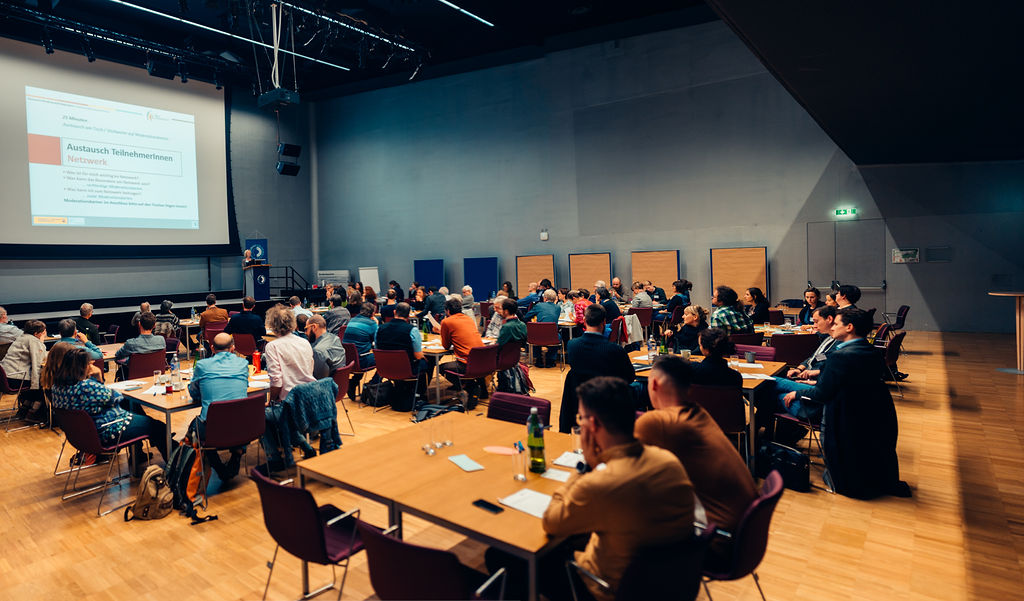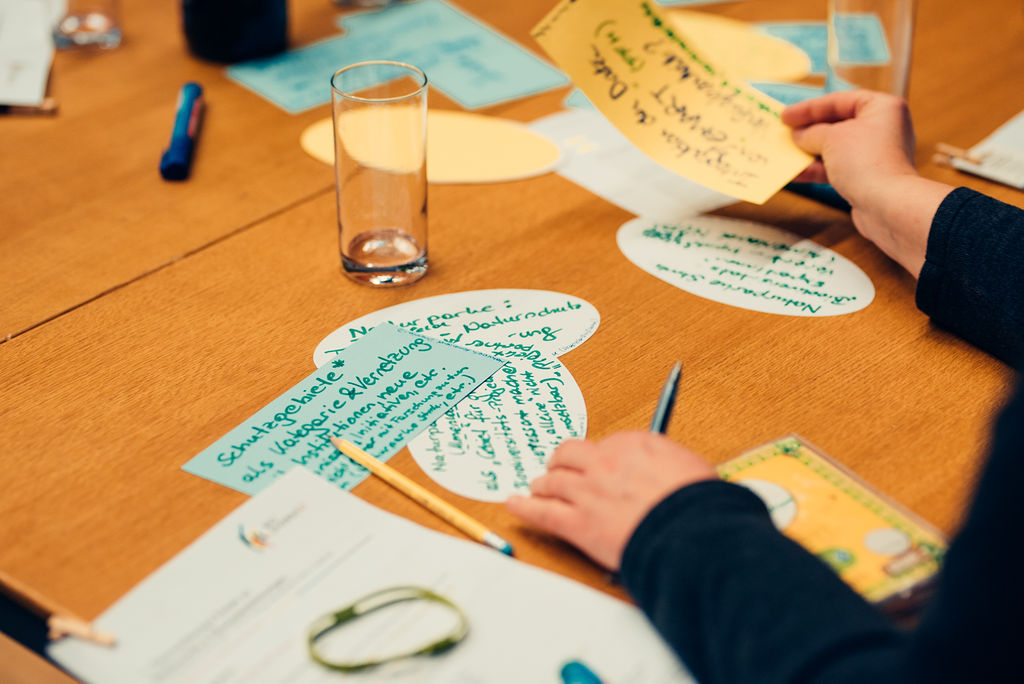Information about the biodiversity hub’s agenda, networking and interdisciplinary exchange among experts were the focal points at the first Austrian Biodiversity & Ecosystem Services Forum. Approximately 70 people from various backgrounds, including research, administration and NGOs, accepted the biodiversity hub’s invitation at Danube University Krems.
The biodiversity hub was established at Danube University Krems in September 2017. Its aim is inter and transdisciplinary activities in the field of biodiversity and their (economic) value for society. The first Austrian Biodversity & Ecosystem Services Forum took place on 18 December to foster networking among biodiversity players in Austria. Univ.-Prof. Dr. Viktoria Weber, Vice-Rector for Research at Danube University Krems, delivered the opening speech.
Forum dedicated to inter and transdisciplinary networking
The forum’s emphasis was on building and strengthening Austria’s biodiversity network. People from different disciplines and occupations had an opportunity to discuss the need for a network to boost biodiversity in Austria, and what form it should take. The participants also worked together on the first steps and focal areas for a science plan on biodiversity & ecosystem solutions, which will show what research will be required in the coming years and enable resources to be bundled towards a common goal.
Biodiversity and climate research
Dr. Daniela Pauli, Forum Biodiversity Switzerland, presented Switzerland’s biodiversity strategy along with the proven success factors of the past 20 years. Univ.-Prof. Mag. Dr. Gerald Steiner, Dean of the Faculty of Business and Globalization at Danube University Krems, spoke about the Biodiversity Austria network. For Dean Steiner, the connections that Danube University Krems has with the Alliance of Sustainable Universities, the Climate Change Center Austria, the Complexity Science Hub Vienna and the Transdisciplinary Labs are important to achieve synergy effects.
Em. Univ.-Prof. Dr. Helga Kromp-Kolb from the University of Natural Resources and Life Sciences Vienna explained how the science plan climate change at the Climate Change Centre Austria (CCCA) was created. Social aspects such as covering information needs and increasing impact and acceptance also became part of the goals. “We as a community carry weight now that we never had before,” Helga Kromp-Kolb said.
Loss of biodiversity
Priv.-Doz. Mag. Dr. Franz Essl, University of Vienna, emphasized the need for action with regard to biodiversity. He warned that global (and national) loss of biodiversity is part of a general system crisis whose impact is still underestimated, and which will have an incalculable – but most definitely massive – impact on humanity. “We are pushing the boundaries of the planet or crossing them, especially in the area of biodiversity," said Franz Essl. Climate change also gives the process a new dynamic, since the two topics are closely interlinked. If, for example, the spread of the bark beetle were included in the calculations, significantly more spruce forests would be endangered by climate change. "We need to strengthen the knowledge base on biodiversity - and we must act quickly," Essl stressed. However, a biodiversity network is also important to relay the message to the outside. Essl continued: "Politicians lack a single point of contact for issues related to biodiversity in Austria."
Better databases required
The necessity of data mobilization and digitization was also the subject of expert inputs and discussions among the participants. A prioritized project of the biodiversity hub at Danube University Krems is the Biodiversity Atlas Austria, a data management system for biodiversity data. Tanja Lumetsberger, MSc, Danube University Krems, provided information on the current implementation status of the Biodiversity Atlas Austria. Forum organizer Andrea Höltl presented the competence map, which makes sustainability experts in Austria focusing on climate, biodiversity, ecosystem services as well as safety and disaster research more visible and findable and thus enables more targeted networking. Heimo Rainer, Natural History Museum Vienna, underlined the extreme importance of data availability in his presentation on networking and the context of biodiversity data at local, regional and global levels.
Ecosystem services and the EU Biodiversity Strategy 2020
Prof. Dr. Ulrike Tappeiner, University of Innsbruck, gave a speech on ecosystem services. These refer to goods and services provided by nature and used by humans to ensure their well-being. By putting natural services into the context of economic categories, the economic value of an intact environment is made measurable. Dr. Martin Götzl, Department of Biodiversity and Nature Conservation at the Federal Environment Agency, spoke about the measures Austria is taking to comply with the EU Biodiversity Strategy 2020. Using recreational potential as a reference, he exemplified the concept of ecosystem services and the associated challenges.
The second Austrian Forum on Biodiversity and Ecosystem Services is planned for December 2019.
Tags
%20Walter%20Skokanitsch.jpg)
%20Walter%20Skokanitsch.jpg)
